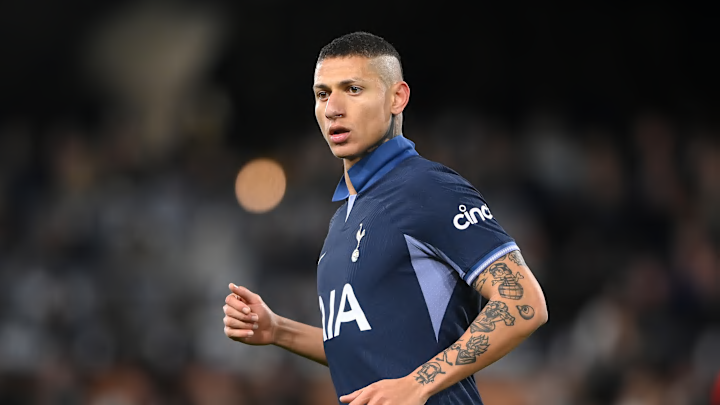In an environment where pressure is constant and expectations are high, psychological support often goes unnoticed, relegated to the background in the face of the sport's physical and technical demands. Richarlison, the forward for Tottenham Hotspur and a member of the Brazilian national team, courageously shares his impactful testimony shedding light on the vitality of this emotional support on and off the pitch.
In a recent press conference in London, Richarlison opened up to share his journey of overcoming, revealing how psychological support was crucial in redeeming his life, both personally and professionally. At 26 years old, the player acknowledged that he was "at rock bottom," facing challenges that extended beyond the four lines of the field.
Follow The Top Flight on X (Twitter).
Last September, the forward began therapy, which proved transformative, allowing him to regain his best performance in the current season. With 11 goals in 26 matches for the English club, Richarlison not only shines on the field but also emphasizes the importance of taking care of athletes' mental health.
Richarlison's testimony highlights the need to openly discuss issues related to mental health in sports, which have long been stigmatized and neglected. His courage in sharing his experience may inspire other players and even sports organizations to prioritize the emotional well-being of their athletes.
The presence of a psychologist in the Brazilian national team's coaching staff, as mentioned by Richarlison, reflects a positive step in the right direction. After all, the pressure faced by players goes beyond on-field performance and can deeply and complexly affect their mental health.
By encouraging others to seek psychological help when needed, Richarlison breaks taboos and stigmas surrounding mental health in sports. His testimony highlights that there is no shame in acknowledging the need for emotional support and that seeking help is a sign of strength, not weakness.
In addition to the challenges faced on the field, Richarlison also shared his struggles off it, including off-field issues that led him to seek psychological support. His honesty and vulnerability demonstrate that even elite athletes face personal and emotional battles, and that it is essential to offer them adequate support.
As Richarlison prepares to represent Brazil in friendlies against Spain and England, his inspiring story resonates not only in the hearts of soccer fans but also in the collective awareness of the importance of psychological support in sports.
